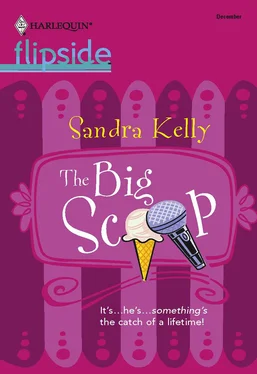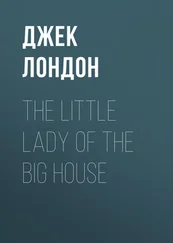Sally watched Jack for his reaction to the spectacle ahead.
Obviously stunned, he slowed the Mustang to a crawl, his gaze riveted on the ghostly remains of half-built structures—shops, restaurants and, beyond, a network of empty streets where new homes should have been.
He brought the car to a full stop in the middle of the deserted road and sat there, gawking. Sally gave him a moment to take it all in.
“What do you see, Jack?” She held her breath.
He took a long time to frame his answer. “I see…a vision…wasted.”
Yes! She had been so right. Jack Gold was the one and only reporter who could tell her story.
“What happened here, Sally?”
As he eased off the brake and proceeded slowly along the access road, she explained how several years ago the town had sold the land to a developer with an inspired vision: Build a series of small, independent communities extending south of town—pods, sort of—that would attract young families looking for affordable homes, with schools and shops nearby. The plan had been to recruit a few national store chains and at the same time to presell the homes. Then the drought came and the local economy tanked. The buyers didn’t come. “The chains backed out. The developer lost his shirt and, well, this is the outcome.”
“I’ve never seen anything like this,” Jack marveled as he cruised through the eerie district, looking all around him. “I’ve never seen anything so…unfinished.”
“That’s just it, Jack! There’s a standing proposal before town council to recruit another developer, but no one in the valley is interested. And there’s no way we can finish the project ourselves, not without raising property taxes through the roof.” Sally was ranting again and she knew it, but she just had to get Jack on board. “Do you know what this would have meant for Peachtown?”
He parked at a curb and turned toward her. “This isn’t really about ice cream, is it, Sally?”
“No. Well, yes and no. Like I said yesterday, we were positioned for growth and change. For progress, Jack.” Please, please, understand this.
“You don’t really believe that Peach Paradise is going to change all this, do you?”
“Got a better idea?”
“It’s not my place to come up with ideas for urban renewal.”
“No, but it is in your power to get the attention of the people who will come up with those ideas—”
“Look, Sally.” His tone was soft, placating.
“—and then make them happen!”
“Sally…”
“Jack, you promised to do the story justice!”
“I came here to write a story about ice cream, and I will do it justice.”
“Yes, but there’s so much more to the story than that. Listen, Jack. All of this—” she waved her hands around “—is documented at Peachtown Hall. We could go there tomorrow. I could give you all the background information you need to get started. I…” What the…? Was he laughing at her? “What’s so funny, mister?”
“You. I’ve never met anybody like you.”
Sally’s face heated up. “I’ll thank you to take me seriously, Jack Gold. Like you promised.”
“And I’ll thank you to remember why I came here. I’ve got an article to write. A short article, and I’m planning to write it tonight, in Vancouver. Besides, I can’t be here tomorrow. I’m covering an important press conference first thing in the morning, in Vancouver. In the meantime, you and I are going to pay Charlie Sacks a visit. I’ll tour the dairy barn with you and I’ll look at your photos, as promised. That’s all.”
Sally folded her arms and worked up her best pouty princess look. Why was he being so difficult? People usually went along with her plans and schemes.
“The pouty thing doesn’t work with me, Sally.”
Darn. She tried wounded puppy instead.
“That doesn’t work, either.”
A sigh escaped her. “Oh, Jack.”
For all of a second he appeared to weaken. But Trish’s comment about her tendency to steamroll over people echoed in Sally’s head, and she decided to let the matter drop—for now.
COULD HE FEEL ANY WORSE?
Jack stood beside Sally on Charlie Sacks’s front porch, waiting for someone, anyone, to answer the bell. They’d only been there a minute or two, but it felt like a week. The air between them was charged with electricity. Sally was annoyed. No doubt about that. But there was nothing he could do to change it.
What was it about her that made him feel so bad? What power did she have to make him second-guess himself? People usually flattered him—buttered him up to get what they wanted. Not Sally Darville. She could act coy, but ultimately she wanted what she wanted on her own terms. It was sort of…refreshing.
Regardless, he wasn’t buckling—no matter how sexy she looked in those little white shorts and that filmy pink blouse with the lacy bra showing through. Her fingernails and toenails were painted a pale pink and her hair was down today, loose and blond and beautiful around her shoulders. And that musky scent she wore—it could lull a man into stupidity.
Was she trying to seduce him? The possibility had struck him last night, and she definitely had been making girly eyes at him this morning. To what lengths would the woman go to get her way? Dammit, he shouldn’t have kissed her last night. It had seemed natural, somehow, but it must have given the impression that he could be seduced. Which, maybe, he could. But not for a price.
The door finally opened and Jack found himself face-to-face with a tall, handsome woman in, perhaps, her late fifties. She had short dark hair and smiling brown eyes.
“You must be Jack Gold, the famous reporter,” she said in a lovely, lilting voice. “I’ve heard such wonderful things about you.” Her handshake was more a caress than an up-down motion. It charmed Jack into a case of instant like.
“It’s a pleasure to meet you, ah, Mrs. Sacks.”
“Oh please, call me Arlene. Come on in.”
Inside the spacious foyer, the women air kissed and agreed that they both looked lovely. While Jack looked around, they chatted about the heat. When would it end? Arlene asked about the dairy. Was business good? And Sally’s parents. Were they expecting any company this summer? Here was something else Jack had forgotten about small towns—the endless welcoming chitchat. Vancouver moved at a faster clip.
“Are you enjoying your stay in Peachtown?” Arlene asked him.
Graciousness seemed in order. “Very much, thank you.”
“That’s good. We pride ourselves on showing people a good time, don’t we, Sally?”
“Hmm.”
Trailing the women down a long central hall, Jack admired the grand old staircase leading to the second floor, and peered into rooms that looked lived-in and happy. On his own, he would never have thought to look up Charlie Sacks. Who wanted to meet a sad old man who’d wasted his chance? Stuck in a small town. Stuck in a dead-end job. But meeting Charlie’s beautiful wife and seeing his comfortable home—well, the man’s life didn’t exactly look like torture.
Arlene glanced over her shoulder. “I must warn you, Charlie’s not in the best of shape today.”
“Oh, is it that awful back problem of his?” Sally asked in a cheesy, theatrical voice Jack had never heard her use before.
Arlene gave a sigh. “I’m afraid so.” She made it sound like the man was about to draw his last breath.
What was that about? Jack wondered. They sounded like amateur actors reading from a bad play.
They passed through a homey kitchen and into a big, sunny family room. Bookcases crammed with dog-eared books and family photos stood at right angles against two long walls. Matching overstuffed sofas and a sunken easy chair took up the centre of the room. Flat on his back on one of the sofas was a bald, chubby man in agony. His mournful eyes slid toward Jack. “Oh, the pain. The terrible paiiiiiiiiin.”
Читать дальше











